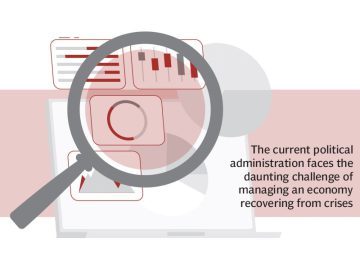A recent study has highlighted the global leaders in spam email generation, along with their environmental impact through CO2 emissions. The Netherlands tops the list for the sheer volume of spam emails sent daily, totalling 7.1 billion. Meanwhile, Ireland claims the highest carbon footprint per email user, with an average of 367.6 grams of CO2 emissions per day.
The research, conducted by ZeroBounce, examined 27 countries to determine which emit the most CO2 through spam emails. By using data from World Population Review and Talos Intelligence, the study calculated carbon emissions based on email usage and the volume of spam sent. It was found that each email emits around 0.3 grams of CO2.
Which Country Sends The Most Spam Emails?
1. Ireland: Despite having only 93 per cent of its population using email, Ireland leads in per capita CO2 emissions from spam, producing nearly 1,918 tons of CO2 daily from 5.8 billion spam emails. Each user emits an average of 367.6 grams of CO2, the highest in the study.
2. New Zealand: With 78.7 per cent of the population using email, New Zealand ranks second in per capita emissions. Each user generates 340 grams of CO2 daily, with the country sending out around 4.7 billion spam emails daily.
3. Denmark: Third in line, Denmark boasts one of the highest email user percentages (98 per cent). Its 5.8 million email users generate around 6 billion spam emails per day, leading to 1,984 tons of CO2 emissions, with a per capita rate of 309.2 grams.
4. Netherlands: Although the Netherlands sends the most spam emails at 7.1 billion daily, its per capita emissions (133.9 grams) are much lower than other countries due to a higher email user base—90 per cent of the population.
5. Australia: Despite 73 per cent of Australians using email, the country ranks lowest in per capita emissions at just 93.9 grams per user. Yet, Australia contributes significantly to global spam traffic, with 6.1 billion spam emails sent daily.
Here’s the full top 10 list:
| Country | Population | % of email users | Number of email users | Spam Emails sent daily in billions | Carbon footprint of spam emails in tons | Carbon footprint of spam emails per user in grams |
| Ireland | 5,089,478 | 93% | 4,733,214.54 | 5.8 | 1918.0 | 367.6 |
| New Zealand | 5,269,939 | 78.70% | 4,147,441.99 | 4.7 | 1554.2 | 340.0 |
| Denmark | 5,939,695 | 98.00% | 5,820,901.10 | 6 | 1984.1 | 309.2 |
| Austria | 8,977,139 | 80% | 7,181,711.20 | 5.2 | 1719.6 | 217.2 |
| Switzerland | 8,851,431 | 96.00% | 8,497,373.76 | 5.9 | 1951.1 | 208.3 |
| Belgium | 11,715,774 | 86.21% | 10,100,168.77 | 6.3 | 2083.3 | 187.1 |
| Sweden | 10,673,669 | 93.00% | 9,926,512.17 | 5.8 | 1918.0 | 175.3 |
| Netherlands | 17,671,125 | 90.00% | 15,904,012.50 | 7.1 | 2347.9 | 133.9 |
| Chile | 19,658,839 | 67.30% | 13,230,398.65 | 5.5 | 1818.8 | 124.7 |
| Australia | 26,699,482 | 73% | 19,490,621.86 | 6.1 | 2017.2 | 93.9 |
This study highlights the environmental cost of everyday digital activities like spam email, underscoring the growing need to reduce unnecessary internet traffic to mitigate carbon emissions globally.





